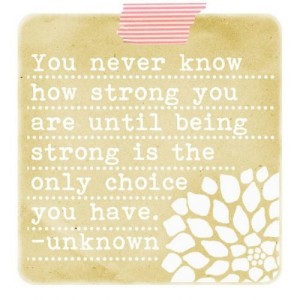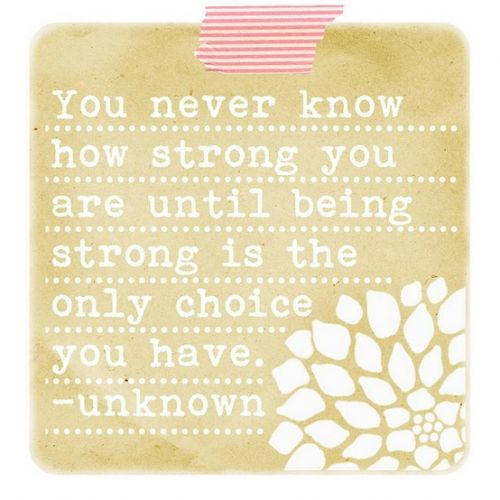Financial mismanagement. Lay-offs of local and international staff. Inappropriate conduct by leadership. Finally, a visit planned from headquarters to see what’s going on. What do you do?
A superior continues to make passes at you. You find out you’re paid less than someone doing your exact same job. Someone takes undue credit for work you did.
 The rules don’t work for us? Guess we have to stand up for ourselves and change those rules. This will not happen by letting power go unchecked or unchallenged, on a personal or a sectoral level.
The rules don’t work for us? Guess we have to stand up for ourselves and change those rules. This will not happen by letting power go unchecked or unchallenged, on a personal or a sectoral level.
Telling a donor or a boss to go fly a kite is an intimidating experience, but there is a point when we have to speak up, no matter how uncomfortable we may be or how much power someone else has.
From my experience, here are seven things that can make these encounters a little less frightening.
1) Use of the powerful’s own language and tactics. Like it or not, sometime we’ll have to “play the game” in order to get the access to change the rules. I tend to favor infiltration and influence. But the words of a friend and fellow writer often also ring in my ear, “Sometimes, you also have to also scream and yell to get a seat at the table.”
2) Consideration of the counter-argument. Anticipate how people may object to what you are saying. If you can, by acknowledging their perspective, you may “head them off at the pass” and defuse their opposition.
3) Your peeps. I tend the tribe as a source of my power. Allies ground me, validate me, are friendly adversaries, help lick my wounds, and share their own tales of speaking truth to power. Invaluable.
4) An ever-thickening, yet still permeable skin. When speaking truth to power, you will receive criticism yourself. Some of it will need to bounce right off your exterior. Some of it will be necessary to reflect upon and move you to the next level.
5) A new definition of vulnerability. Powerlessness is only a perception. But I find that if I can acknowledge my own vulnerability, I can find a more secure place from which to advocate. In fact, my vulnerability emboldens me in a way, knowing that push-backs are necessary.
6) A back-up plan. Whistleblowers often have to start anew. It’s the price they pay for speaking truth to power. But personal risk is often over-estimated. Bureaucracies and organizations benefit from our fear of losing our jobs. But we are not our organizations and it is foolish to equate income with security.
7) Non-attachment to outcomes. You win some. You lose some. Real change is due to many factors outside of your control. So keep the long arc of justice in mind and let it rip anyway.
Why is it important for people to speak their truths within their organizations and within global development circles?
Because if you haven’t noticed, it is all about power.
So let her rip.
***
A version of this post first appeared on the Women Working in Aid and Development blog.


Amazing how you time your posts to correspond with the questions that I’m ruminating. Specifically, some of us in Palestine are thinking about accountability mechanisms that locals can use to hold international organizations accountable. We’re considering a complaint mechanism or maybe a dispute resolution mechanism. I’m sad that there has been no accountability for so long and that as a result, international organizations have enjoyed a kind of impunity, which itself breeds abuse. There are specific problems ranging from abuse of funds (corruption or mismanagement), cheating on contracts, unfairness in decision-making, etc. And there are more general/collective abuses like undermining local actors, distortion of the economy, etc. As I reach out to Palestinians and others around the world to find out what exists and how this could work constructively, there is so much fear. Fear of being de-funded, blacklisted or worse. I feel scared too, but your “7 things you need to speak truth to power” helps tremendously. Thank you for all you do.
I especially focus on #7. It’s about releasing the need to always control everything, and then not feel personally responsible for things that are outside of my control. Trust and building relationships is about sharing the control and the claims to the outcomes.
A comment on LinkedIn shared that the origins of the phrase, “speak truth to power,” are from Quakers speaking out against war. So the was perturbed that I was using this with such “minor” issues. Very interesting. I certainly would never compare being unfairly paid to speaking out against war. However, this post was inspired by a conversation about female aid workers speaking out against sexual violence in the workplace.
While the situations described in my post may not be putting jail on the line, the experience of speaking out is universal in that is requires bravery, especially if you are not socialized to do so, nor are part of a group that has created the unjust system in which we participate, either large or small “s”.
Another great comment via LinkedIn: “What needed is to change the employment/staffing policies of the AID and Development Agencies/Organizations; in order to put ‘Development and/or Human Rights Activists’ in the top leading positions; to replace the Bureaucrats that are currently holding those positions. Many things will positively change; such as,
i) the funding priorities (will be more towards being driven by the target communities priority needs/problems, not by donor’s priorities);
ii) the relationship with the beneficiary-organizations (more towards considering them real partners); and
iii) the Agencies’ work principles and values (more towards promoting and supporting innovation and team achievements, not mere compliance and individuals’ achievements), etc…This will certainly entail changing the Agencies’ Policies & Procedures regarding staff recruitment, hiring and performance evaluation. Also, it will entail changing all their work strategies. The important question is, however, are they interested; and/or know how?”
This is an interesting stuff!!!
development in womens related prgramme needs in less develop country active participation of women! Syill some society does not permit womens for development procedure! Donar’s project money always taken away by consultants and ngo’s managements! Direct implement policy should be incorporate through community development committee